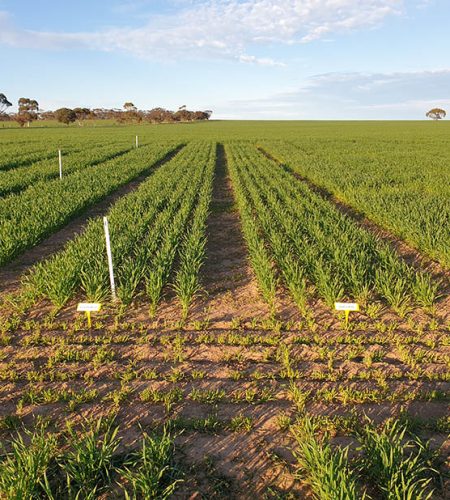Brian Dzoma
Project Leader
Primary Industries and Regions SA
Calcareous soils occupy about 60% of the cropping soils in south-eastern Australia, and more than 1.1 M ha of South Australian cropping areas are highly calcareous. These soils have a range of constraints limiting crop production and the effectiveness of improved agronomic practices.
This project will build on the legacy of a previous Soil CRC/GRDC project, ‘Overcoming soil constraints in highly calcareous soils’, which developed innovative physical and chemical management packages to improve conditions on calcareous soils.
Co-funded by the Grains Research and Development Corporation and Primary Industries and Regions SA (PIRSA), the current project aims to provide integrated and sustainable soil phosphorus management strategies to farmers and advisers dealing with highly calcareous soils. Poor phosphorus nutrition is a major constraint to improved crop productivity on these soils because the effectiveness of conventional phosphorus fertilisers is very low.
In the previous project, a ‘carbon coated mineral’ (CCM) was one of the best performing strategies to increase crop growth in highly calcareous soils when applied in the topsoil. This was attributed to the more superior delivery of phosphorus to the crop compared to conventional fertilisers. The current project will further investigate CCM and biochars to improve soil phosphorus delivery and crop production.
The project team will conduct glasshouse pot experiments followed by two replicated field trials across two growing seasons in South Australia’s upper Eyre Peninsula. Data will assist with the development of a suite of universal next-generation soil constraint decision-support tools.
This project will develop solutions to enhance phosphorus delivery and use efficiency in highly calcareous soils, thereby enabling farmers to increase their productivity and profitability in this challenging soil type.

